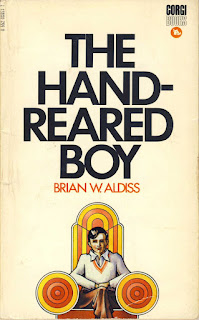Rating: AdmirableFor a long time I avoided reading any of the works published by well known atheists (personally I'm in a position beyond atheism, but more on that later), such as Richard Dawkins, but having never read any of Hitchen's work, and knowing that he copped a great deal of heat for his atheistic views over the years, I thought I would find out just how against the notion of god he was. Turns out he was quite extreme in his atheistic views and God is not Great is an all out attack on organised monotheistic religion (eastern religions also come in for some flack as well). Some of the chapter headings certainly make his position clear, such as 'Religion Kills', 'The Metaphysical Claims of Religion are False' and 'Is Religion Child Abuse?' His argument style is forceful, compelling, but not always to the point. Hitchens frequently labours his arguments, but on the whole he hits home with quite devastating critiques of core religious notions, such as that humans need religion in order to lead moral lives. His takedown of the ten commandments is something to behold, arguing that some of the commandments actually existed to encourage bloodletting and racist behaviour (in particular within the context of the historical tribal origin of said commandments). Hitchens explores many of the inherent contradictions and problems found within religious belief - bigotry, homophobia, hostility toward scientific progress, misogyny, coercion, in particular toward children, and its righteousness and intolerance toward other modes of thought and ways of living. At one point he argues at length that monotheistic religion has a close affinity with totalitarianism, making some salient points to support his controversial thesis. If I were religious I'd find the book to be a direct attack on my very being, fortunately I'm not, so I quite enjoyed it.
 |
| Proof that god does not exist. |
God is not Great is not without its flaws however. Although Hitchens does, at times, show some levity toward the more reasonable aspects of religion, he does, on the whole, focus on its extremes; righteous evangelism, war in the name of god, targeting of homosexuals and so on. Although I'm a long time atheist I can see that religion has done some good for humanity (the bad far outweighs the good however). Hitchens also comes across as a true essayist, rather than an academic, blending opinion and facts (some of which are potentially incorrect - although many of the critics pointing this out wrote for religious journals it seems); he very much writes with his own voice, for better or worse. This sometimes involves coming across as arrogant or pompous, in particular when he uses overly emotive insults when describing certain people, referring to them as 'ludicrous mammals', 'pathetic' or 'absurd'. Hitchens is unrestrained in his distain, which is understandable, but it can come across as unnecessarily strident at times. Still, these are minor quibbles, and God is not Great stands as a decisive lancing of the purulent boil of monotheism, done in the most painful way imaginable. As for me? Well, about four years ago I went from being an atheist to embracing existential nihilism and have been much happier ever since. Essentially not only do I believe that humanity has no viable future, but also that humans have no inherent worth, if we became totally extinct it just wouldn't matter at all, the universe would not care. It's very freeing and I advise it for any free-thinking individual. It doesn't mean that you don't care about people, life, or being fulfilled, it just means that if it all ends, then what of it? I'm sure Hitchens would have approved had he lived, however both he and his close friend, Martin Amis, have died, two of the greatest godless literary buddies in history. RIP, but not in heaven or hell...
 |
| Proof that god does exist? |




































